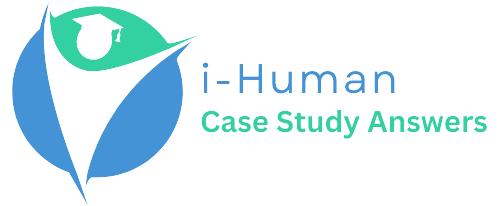Module 1: Advanced Nursing Practice Competencies, Integumentary, and HEENT Conditions
Week 1: Competencies of Advanced Nursing Practice
Advanced nursing practice competencies emphasize the unique knowledge, skills, and attitudes needed by nurse practitioners in clinical settings with adults across the lifespan. These competencies, designed by field experts, offer clarity on requirements for success. Practical application is crucial for competency development, with virtual simulations, such as i-Human case studies, providing valuable formative practice. This week involves examining these competencies, reflecting on personal strengths and challenges, and considering the course’s role in achieving career goals.
| Module Overview | Week & Topics | Tasks | Deadline |
| Module 1: Advanced Nursing Practice Competencies, Integumentary, and HEENT Conditions | Weeks 1–3 | – Review Learning Resources | Days 1–7 in Weeks 1–3 |
| Week 1: Competencies of Advanced Nursing Practice | – Participate in Week 1 Class Café: Introductions | Post by Day 2 of Week 1 | |
| – Engage in Week 1 Discussion: Career Goals | Post by Day 3 of Week 1 and respond to colleagues by Day 6 of Week 1 | ||
| Week 2: Evaluation and Management of Integumentary Conditions | – Complete and submit i-Human Case Study Assignment for Week 2 | By Day 7 of Week 2 | |
| Week 3: Evaluation and Management of HEENT Conditions | – Complete and submit i-Human Case Study Assignment for Week 3 | By Day 7 of Week 3 | |
| – Complete and submit Knowledge Check: Module 1 | By Day 7 of Week 3 | ||
| – Go to the Week’s Content |
Learning Objectives:
Students will:
- Analyze strengths and challenges related to nursing practice competencies.
- Describe professional career goals or objectives.
Learning Resources:
- Required Readings (click to expand/reduce)
- Required Media (click to expand/reduce)
- Class Café: Introductions
Class Café: Introductions
This Class Café serves as a space for discussions unrelated to the formal content of the course, and it will not be assessed. While not mandatory, participants are encouraged to engage, fostering familiarity among colleagues. If a post involves personal concerns requiring an individual response from the instructor, please email the instructor directly.
By Day 2:
- Post an introduction and questions about the course.
- Respond to colleagues’ posts, addressing queries or posing additional questions.
Note: The Class Café is not required for assessment but is a recommended platform for networking.
Submission and Grading Information:
Post by Day 2:
- Participate in Class Café: Introductions.
- Discussion: Career Goals – Strengths and Challenges Related to Nursing Practice Competencies.
By Day 3:
- Post a summary of course expectations, including strengths and challenges related to nursing practice competencies.
- Describe career goals in the Family Nurse Practitioner (FNP) or Adult-Gerontology Primary Care Nurse Practitioner (AGPCNP) role, providing reasons supported by credible scholarly sources.
Read and Respond:
- Engage with at least two colleagues on two different days, offering suggestions or resources to address strengths, challenges, or career goals.
- Support suggestions with credible and current scholarly sources (minimum 3).
Note: Initial posts must be completed before viewing and responding to colleagues’ postings. Once submitted, posts cannot be edited or deleted, and anonymity is not allowed. Check posts carefully before submission.
Submission and Grading Information:
- Grading Criteria: Week 1 Discussion Rubric
- Post by Day 3 and Respond by Day 6
- Participation: Week 1 Discussion
Assignment: Practicum Manual Acknowledgment
The Practicum Manual outlines the structure, timing, and policies for successful completion of classroom-based and practicum experiences in nurse practitioner (NP) specialties.
- Field Experience: MSN Nurse Practitioner Practicum Manual
- Follow instructions to confirm downloading and reading the entire manual, acknowledging adherence to program requirements.
What’s Coming Up in Week 2?
Practicum – Upcoming Deadline
If you are planning to take a practicum course within the next two terms as part of the Nurse Practitioner programs (FNP, AGACNP, AGPCNP, and PMHNP), it is essential to submit your application via Meditrek.
For details on the practicum application process and deadlines, refer to the Field Experience: College of Nursing: Application Process – Graduate web page.
Ensure you review the appropriate preceptors and field sites for your courses. Familiarize yourself with the practicum manuals, FAQs, webinars, and any required forms on the Field Experience: College of Nursing: Student Resources and Manuals web page.
Field Experience: College of Nursing Quick Answers
- Field Experience: MSN Nurse Practitioner Practicum Manual
- Student Practicum Resources: NP Student Orientation
Looking Ahead:
Starting in Week 2, you will be required to complete case study assignments using the web-based software i-Human. Check your email for the i-Human Patients login and password. If you haven’t received this information, contact the Course Instructor.
Ensure you can log in and review the i-Human Patients Case Player Student Manual for guidance on navigating i-Human.
Week 2: Evaluation and Management of Integumentary Conditions
An essential skill for an advanced practice nurse is gathering patient information to inform the diagnosis and treatment of conditions. The physical examination often begins with visual observations of external characteristics, including body language, demeanor, and cognitive ability, as well as the skin, hair, and nails (integumentary system). This information contributes to the overall evaluation of a patient and guides assessment and diagnosis.
For this week:
- Analyze a simulated case study about an adult i-Human patient with an integumentary condition.
- Formulate a differential diagnosis based on the patient’s information.
- Evaluate treatment options and create an appropriate treatment plan.
Learning Objectives:
- Formulate differential diagnoses for adult patients with integumentary conditions.
- Analyze pattern recognition in adult patient diagnoses.
- Analyze the role of patient information in differential diagnosis.
- Evaluate pharmacologic and non-pharmacologic treatment options for adult patients.
- Create an appropriate treatment plan, including health education and follow-up care.
Learning Resources:
- Required Readings (click to expand/reduce)
- Required Media (click to expand/reduce)
- Assignment: i-Human Case Study: Evaluating and Managing Integumentary Conditions
This course involves completing case studies using the i-Human software application, allowing you to interact with virtual patients and enhance patient-assessment and diagnostic-reasoning skills. With i-Human Patients (IHP), you can independently interview, examine, diagnose, and treat virtual patients, receiving expert feedback on your performance.
The integumentary system is susceptible to a variety of diseases, conditions, and injuries, ranging from the bothersome but relatively innocuous bacterial or fungal infections that are categorized as disorders to skin cancer and severe burns, which can be life-threatening.
For this Case Study Assignment:
- Examine your first case study and work with a patient having an integumentary condition.
- Formulate a differential diagnosis, evaluate treatment options, and create an appropriate treatment plan for the patient.
To Prepare:
- Review this week’s Learning Resources on assessing, diagnosing, and treating patients with integumentary conditions.
- Familiarize yourself with the i-Human software by reviewing the i-Human Patients Case Player Student Manual in this week’s Learning Resources.
- Access i-Human and review this week’s i-Human case study (Krista Hampton V5.1 PC PL). Collect the health history you would need from the patient.
- Consider appropriate physical exams and diagnostic tests to gather more information about the patient’s condition.
- Reflect on how results would be used to make a diagnosis.
- Identify three to five possible conditions for a differential diagnosis.
- Consider clinical guidelines supporting the diagnosis.
- Develop a treatment plan for the patient, including health promotion and patient education strategies for integumentary conditions.
Assignment:
- Interact with this week’s i-Human patient to complete the assigned case study. Refer to the i-Human Patients Case Player Student Manual in the Week 1 Learning Resources for guidance.
By Day 7:
- Complete your Assignment in i-Human.
Submission and Grading Information:
- Access your rubric: Week 2 Assignment Rubric
What’s Coming Up in Week 3?
Week 3 Knowledge Check:
- Week 3 concludes Module 1, and you will complete a Knowledge Check assessment covering the Module 1 topics examined in Weeks 1–3. Plan your time to review accordingly.
Week 3: Evaluation and Management of HEENT Conditions
- This week focuses on the head, eyes, ears, nose, and throat (HEENT) system. Understanding abnormal manifestations in the HEENT system is crucial for advanced practice nurses. While there won’t be a simulation case study, your continued observations and gathering of additional patient information are vital for developing advanced nursing skills.
Learning Objectives:
- Identify key terms, concepts, and principles related to the primary care of adults across the lifespan.
Learning Resources:
- Required Readings (click to expand/reduce)
- Required Media (click to expand/reduce)
Knowledge Check: Module 1 – Advanced Nursing Practice Competencies, Integumentary, and HEENT Conditions
Overview
Complete a 10-question Knowledge Check to assess your comprehension of this module’s content. This formative practice aims to enhance your preparation for the Midterm, Final Exam, and Nurse Practitioner (NP) certification exam. Questions cover topics from Weeks 1, 2, and 3, including Nursing competencies, Billing and coding, Integumentary conditions, and HEENT conditions.
Note: Take your time, give your best effort, and answer each question to the best of your ability.
By Day 7: Complete and submit your Knowledge Check.
Submission Information: Submit your Knowledge Check by Day 7.
To submit your Knowledge Check: Week 3 Knowledge Check
What’s Coming Up in Module 2?
Module 2:
Examine the evaluation and management of cardiovascular conditions in Week 4 and respiratory conditions in Week 5. Assess, diagnose, and treat two i-Human patients—one presenting a cardiovascular condition and one presenting a respiratory condition.
Week 5 Knowledge Check: Experience your next Knowledge Check in Week 5, covering Module 2 topics from Weeks 4 and 5. Consult the Week 5 Knowledge Check Assignment for additional details on the topics covered. Plan your time accordingly.
Related Services


